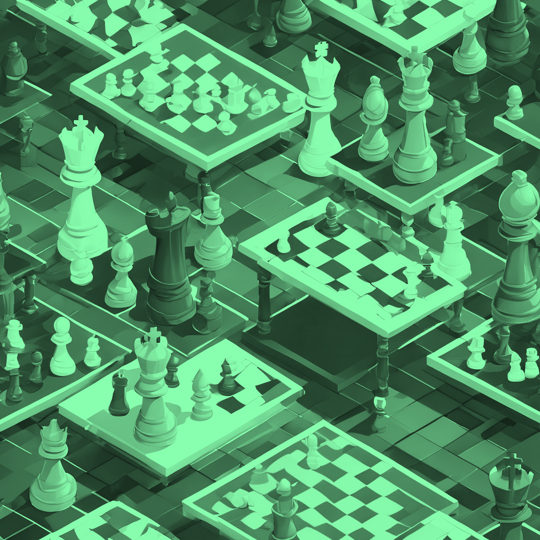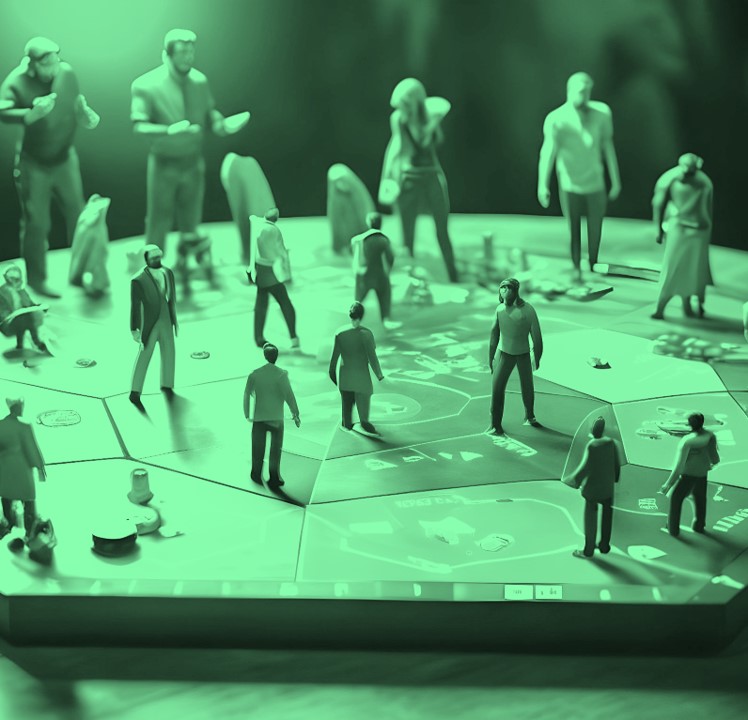
How Game Theory can show us that trust and cooperation can emerge even in heavy competitive contexts
Trust, cooperation, sharing, altruism, fairness…Sometimes we’re lucky to experience them in our small group(family, friends, team, community etc.) but, the moment we step outside of it things start to fall apart very quickly…The degradation in the manifestation of these principles increases exponentially as we need to interact with more and more people and their groups.
Scale breaks everything …. and, pretty soon, things start to transition:
- Trust ⇢ Circumspection,
- Cooperation ⇢ Competition,
- Sharing ⇢ Hiding,
- Altruism ⇢ Selfishness,
- Fairness ⇢ Inequity
- and so on…
So what’s happening? Why is it really so hard to keep these essential values front and center? When should I stop sharing and start being more self-centered? How can I decide when to compete and when to collaborate? And when should I trust someone and what can I do when I don’t?
Why Game Theory can help us with an answer?
This is why it exists |
Logical & relatable |
It scales |
|---|---|---|
|
It was developed to model decision-making in competitive environments where the outcome for one depends on the decisions of the others. |
It removes a lot of subjectivity, convoluted theoretical arguments, fuzzy judgements and anecdotal stories we many times hear from the “experts” and replaces them with logical, testable models with provable outcomes. |
It helps us understand behavior and evaluate collaboration and competition at scale, not confined to small teams and controlled examples. |
What will we do?
Learn the main concepts
Go through Game Theory’s main concepts and how you can identify and apply them to everyday life (professional or personal)
Predict behavior
Learn how our behavior from the past impacts our ability to collaborate in the future and what to do in this context

Learn the strategies
Delve into more complex competition/cooperation scenarios and evaluate different game strategies and their outcomes
Understand our biases
Understand most common human traits and biases that influence how predictable and rational we really act.
Final warning!
This is a very interactive workshop that will require a lot of audience participation, because
Life is a game and we only learn by doing, so
We’ll play a lot of games and use a few simulators and in this way
You will learn a lot about the dynamics of trust and cooperation, so that
Together, we can make the world a better place 🙂!
What people had to say about this session
I really liked the topic as it was new to me and the fact that there were a lot of practical examples in which game theory is applied. I enjoyed the presentation structure and the atmosphere, as it was fun and interactive.
The topic was very interesting and I enjoyed the interactive format of the presentation
I really appreciated the active engagement of the presenter with the participants throughout the entire session
Steps to register
- Fill in the registration form below.
- I will contact you back for a 15min discussion to make sure this training is fit for you.
- I will send you the payment details.
- You pay and become registered.
About the trainer:
About the trainer:
I’m a Computer Science graduate, but I’ve only been a full-time programmer for the first 10 months of my career. For the rest of 20+ years, I’ve been leading teams, projects, teams of teams, departments and business units. Throughout this time, I’ve always been fascinated by how and why people cooperate and how they build, cultivate, lose, recover and amplify trust, along the way. Regardless of my various roles, I’ve always had the most joy when I’ve helped build strong teams and then I’ve witnessed them forge their spirit and grow with every success and every challenge. This workshop is my way of sharing what I’ve learned in this journey.

